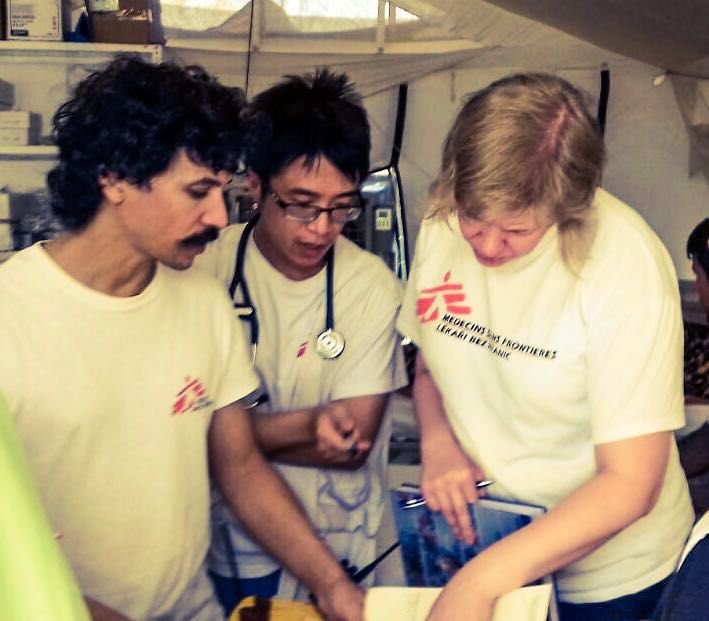One late night, our hospital received a patient with a gunshot wound and he needed emergency surgery. In Bor, you have to prepare everything yourself before operations, from electricity supply, to surgical gowns, instruments, etc. Fuel has been lacking in days of war and the price of fuel was soaring high. Wearing headlights to surgery was basic since the power supply would cut anytime and your headlight would save the day.
Before we went to the hospital, our logistician secured fuel and we had to bring the fuel to the generator and kick start the engine. There was also no cleaner that night and the nurses had to take up the job of cleaning the operation theatre. We also discovered we did not have enough sterile equipment we needed so we had to search the MSF protocols for a quick sterilization for the equipment. Finally, the surgery was over but the work was not yet completed. The patient remained critically ill and we had to stay overnight to continue resuscitation.
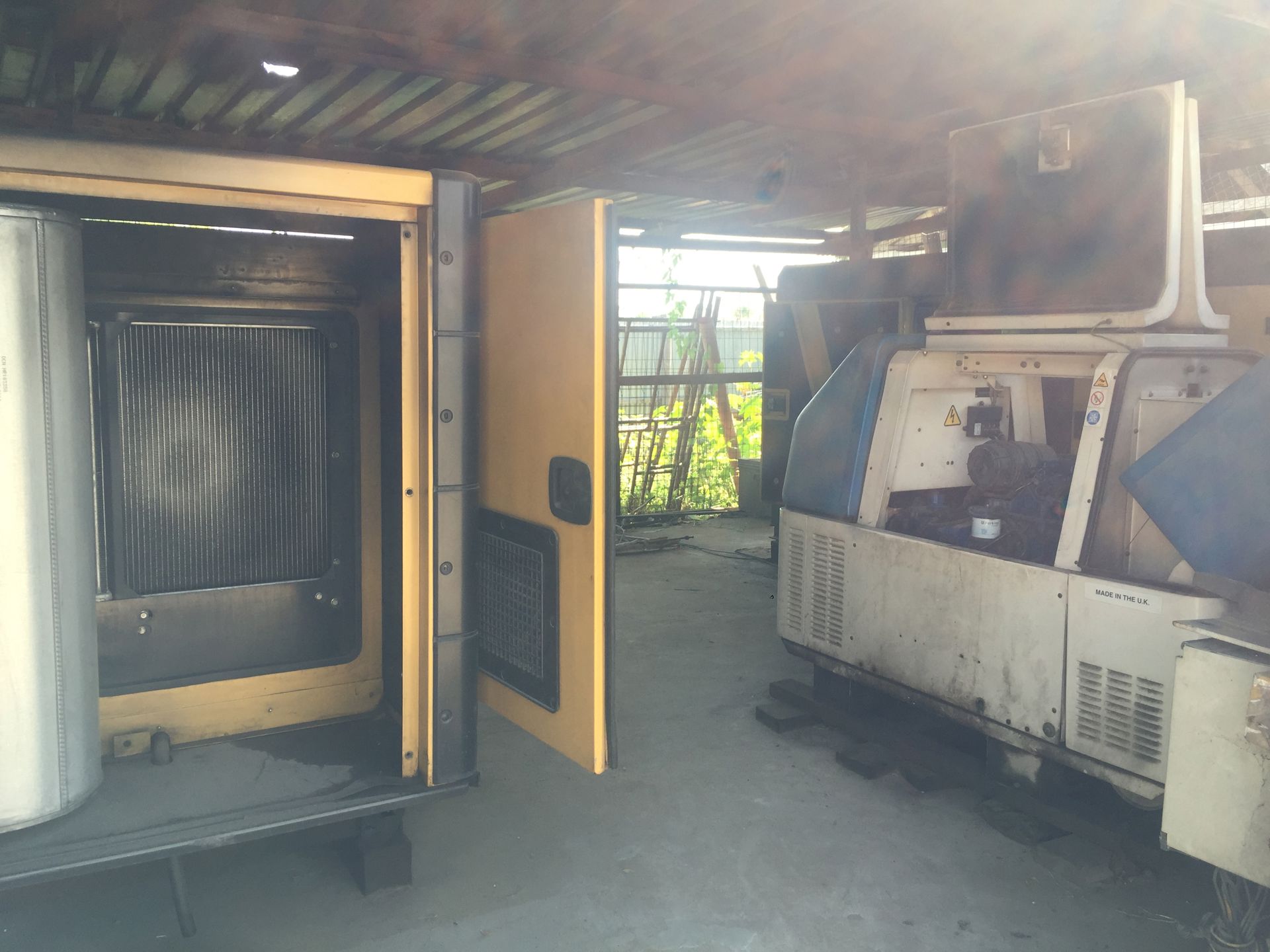
The generator in the hospital. Photo source : Dr Shannon Chan
Living in Hong Kong, there are simply too many things that are being taken for granted. Back at home, the click of a button and a phone call would mean everything in the operating theatre would be prepared. But in Bor, everything, even the most minor details has to be done by you and your team. Washing your own equipment, cleaning the OT theatres, filling the water bucket, etc. This makes the completion of an operation worth more cheers than anything. In the field, every little success is a big success.
New challenges come by every day. In December, we received a young man who had a very bad wound in his hand. He was suffering from a severe bacterial infection, leading to a condition called “Necrotising Fasciitis”. His infection was so severe his blood pressure was very low, and he was in what we call “septic shock”. Necrotising fasciitis is notoriously infectious and spreads rapidly along the fascia. Treatment must be prompt or else the patient’s life would be at stake. To make things worse, the patient also had HIV and hepatitis B. HIV weakened his immune system and made him vulnerable. If he was in Hong Kong, we could have done repeated wound debridement and when he stabilizes, reconstruction surgery can be done. But in South Sudan, if his condition worsened after the debridement, we had no ICU to support him. Our principle is always to “save life, then save limb”. Amputating his arm seemed to be the best option.
Our infection control nurse Evelyn from Belgian reminded me that for such a case , strict infection control measures must be implemented. However, we had no advanced equipment for safeguarding infection control in Bor. We were then in a dilemma------given the possibility of rapid deterioration of the patient’s condition, we must intervene with surgery. But if we proceded to surgery without sufficient safety precautions, we would put the lives of other patients at risk. The nurse then spent over an hour to wrap the white operating theatre and table with blue and red waterproof disposable drapes, leaving no gap that would allow direct contact of the patient’s body fluid with the room.
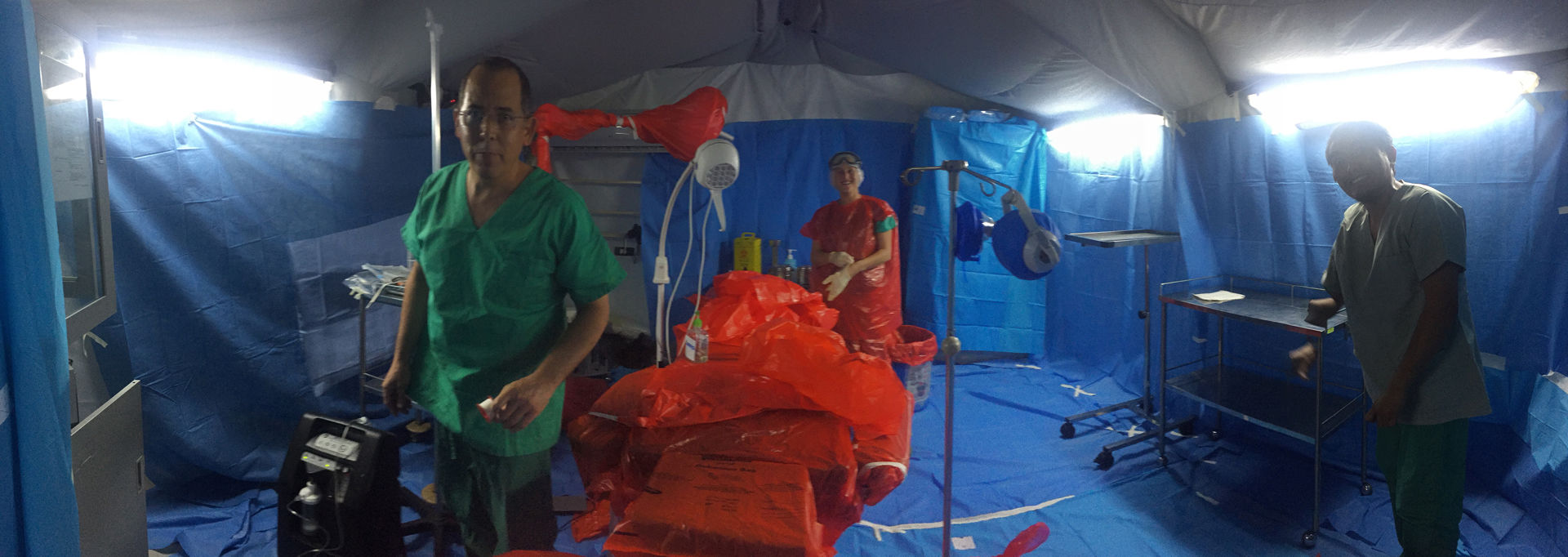
The Belgian nurse wrapped the whole operating theatre with disposable drapes for infection control. Photo source : Dr Shannon Chan
The surgery was performed with extra scrutiny and care. According to guidelines, the amputated arm from the patient must be burnt. The incinerator however was broken and so our logistician used the time of during the operation to repair it. After the operation, everything we used was thrown into the incinerator to burn. We watched the flames as everything burn into ashes. The case was received at around 6pm. With all the extra setups and precaution, we finally left the hospital at 2am.
And that day was actually also my birthday. My birthday present was a mission impossible made possible, and it felt good.
I felt so exhausted as the adrenaline drained out of my body. My colleagues, however, had prepared a glass of mojito for each of us to celebrate my birthday. Why Mojito? Here in the expat house were all the necessary ingredients left by an Cuban expat who was very good at making the cocktail. The glass of mojito gave me a taste of coolness in the hot weather and that surely was not be taken for granted.
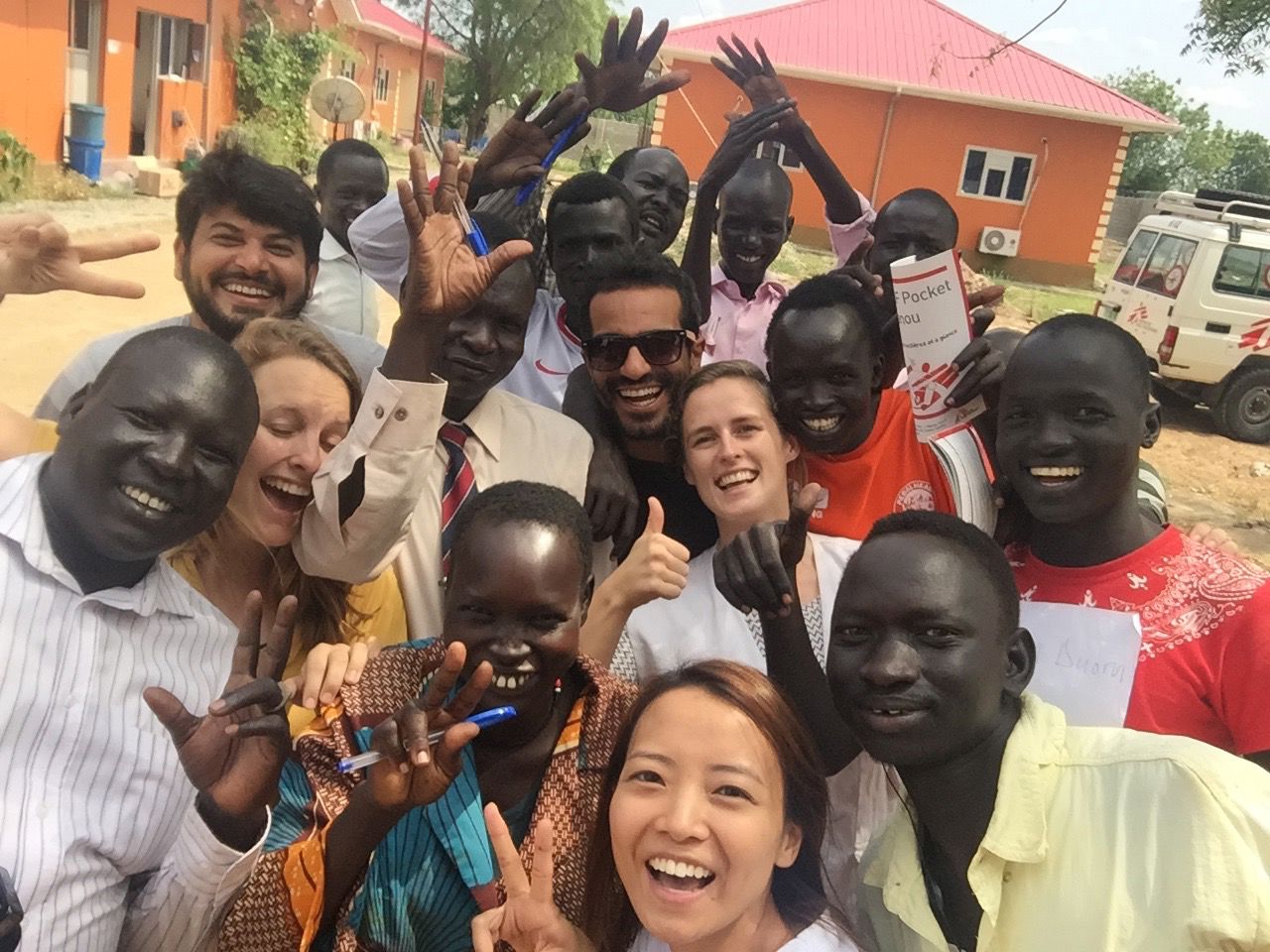
Dr Shannon Chan (the second from the right in the front row) took a picture with other international and local staff in the project. Photo source : Dr Shannon Chan
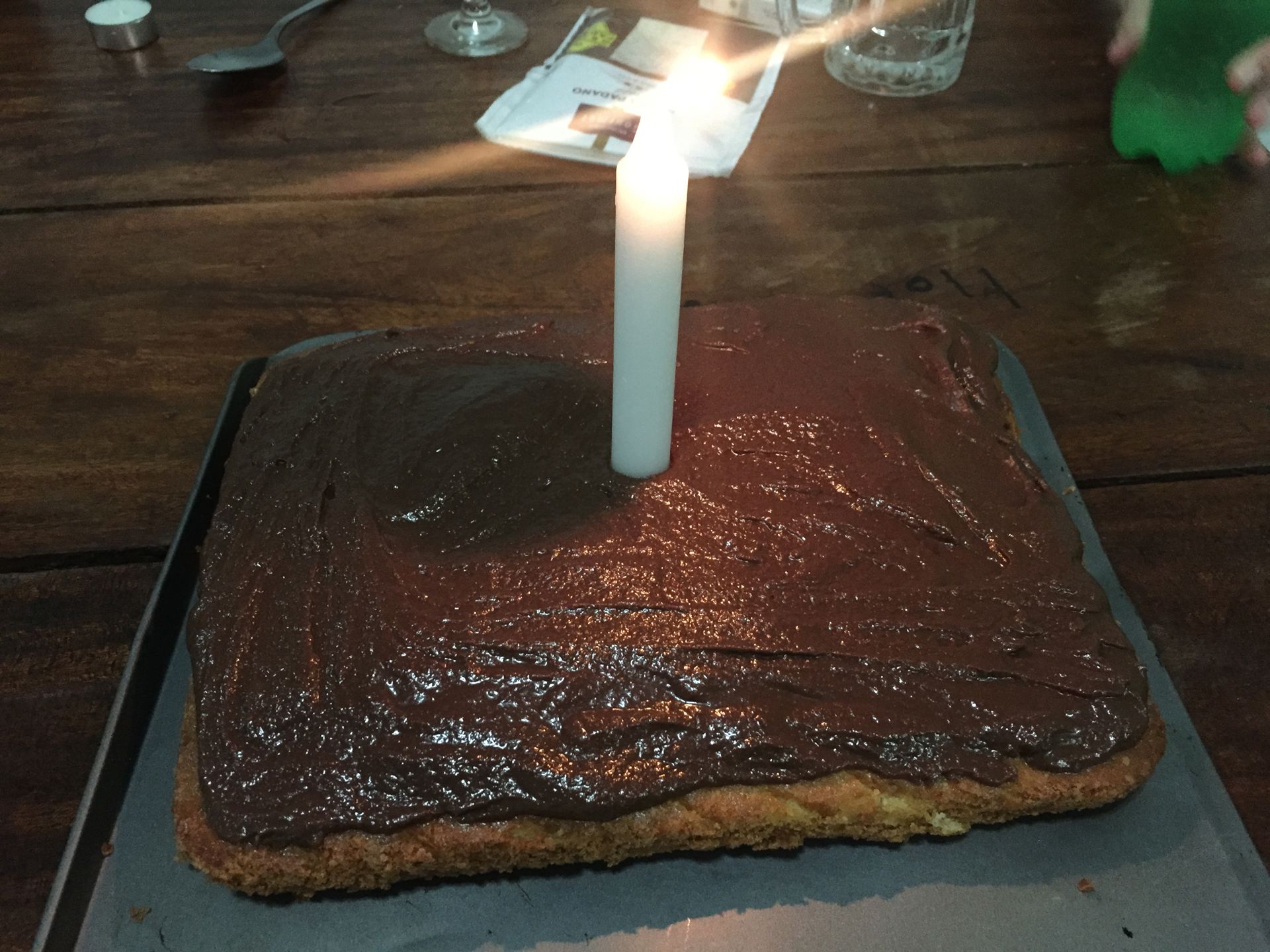
The birthday cake prepared by the colleagues of Dr. Shannon Chan. Photo source : Dr Shannon Chan
Time flied and my three months mission finished. On the last day in South Sudan, I met the Hong Kong doctor that came to replace me. He was my senior in university. A few years back when I graduated, he handed over the CUHK alumni dragon boat team to me. And today in the airport of Bor, on the other side of the world, I passed on my mission in Bor to him. It was a very special feeling to have friends and mentors who strive for the same goal. As I waved him goodbye and stared at the back of the MSF car, enjoying the last of the hot breeze and dazzling sun, I knew I would be back again.
Life must go on after this unforgettable journey to South Sudan. Coming back to this familiar place, staring at these advanced equipment and well-equipped operating theatre, I know I am no longer the same.


